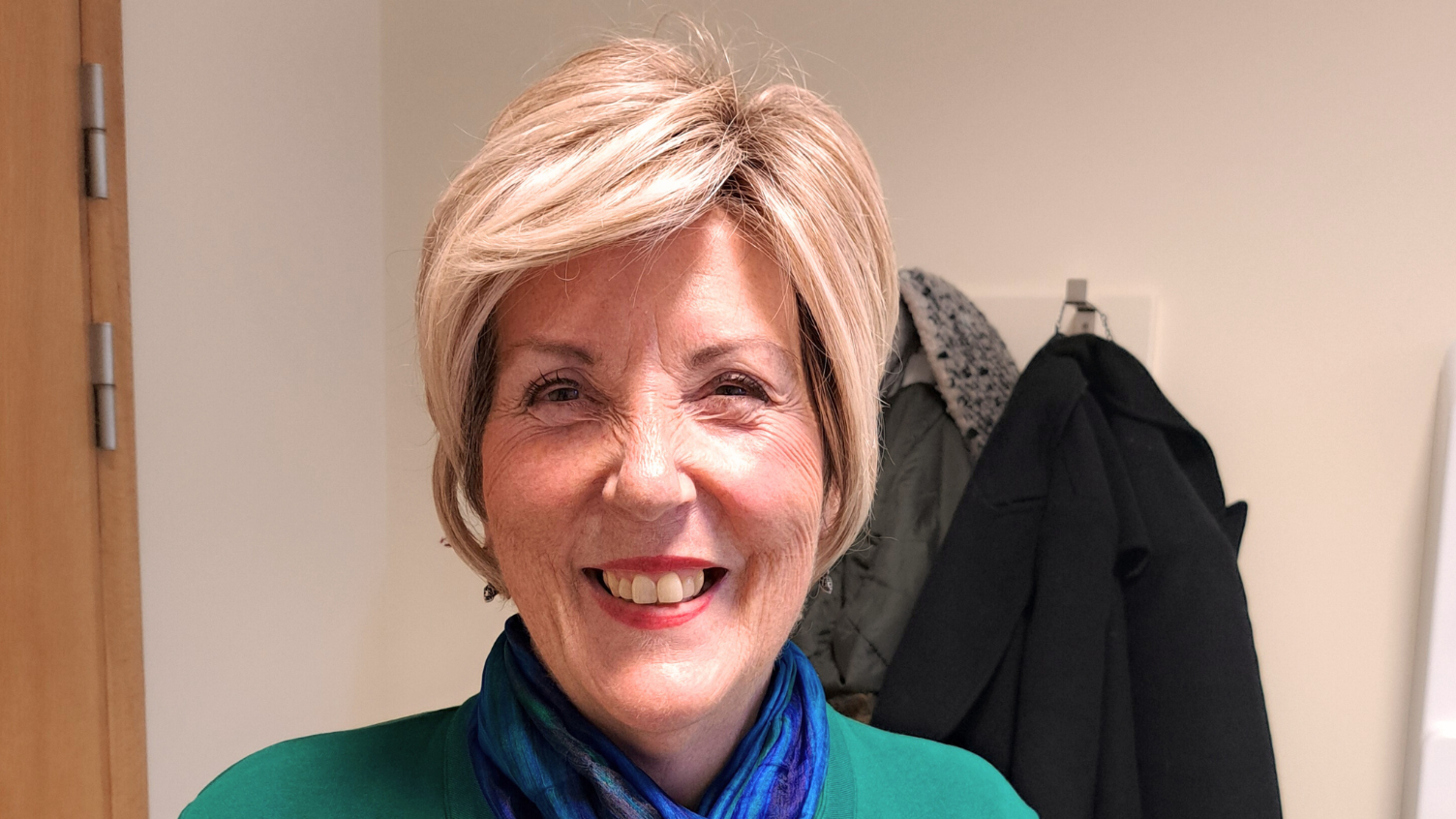Kent researchers on how they use Join Dementia Research to recruit volunteers to studies
- 7 September 2021
- 5 min read
Dr Stacey Rand, senior research fellow and Dr Barbora Silarova, research associate from the Personal Social Services Research Unit at the University of Kent have used Join Dementia Research to recruit volunteers to two of their studies.
Dr Rand and Dr Silarova explain how and why they used Join Dementia Research.
Dr Silarova said: "Stacey and I have used Join Dementia Research as a key recruitment pathway for two of our studies - The Measuring outcomes of people with dementia and their carers (MOPED) study and The dyadic wider impact of social care: support for older carers and the people they care for (DYADS) study. Stacey Rand is the chief investigator for both studies.
The MOPED study aims to understand whether two questionnaires that are part of the Adult Social Care Outcomes Toolkit (ASCOT) - are valid, reliable and feasible measures of social care-related quality of life (SCRQoL) for people with dementia who are unable to self-report (ASCOT-Proxy) and their unpaid carers (ASCOT-Carer) who use at least one type of community-based social care service in England. Both questionnaires are filled in by carers and therefore the study recruited only carers. So in the MOPED study, ASCOT-Proxy is completed on behalf of the person with dementia, by someone who knows him/her well - such as, a close friend or relative. By 'unpaid carer', we refer to family members, friends and neighbours who help and support people living with dementia.
Recruitment started in January 2020 and we recruited 173 people out of 313 unpaid carers of people living with dementia who are living in their own home from Join Dementia Research across England. They filled in the survey using a paper questionnaire or online.
Before the pandemic, we planned to engage with social care organisations - local authority adult social care departments, carers organisations and care providers - as well as Join Dementia Research. We started recruitment in January 2020 but when the pandemic started in March 2020, we were not able to engage with target organisations as we had planned. However, it was possible to continue the study with recruitment through Join Dementia Research and also NHS sites which were added later.
Once the study was put onto Join Dementia Research by the national team we had access to volunteers, pre-selected by the team after defining that we were looking for carers who looked after someone living with dementia.
There are three ways you can then contact potential participants - via email, send letters, or call them. Participants state how they would prefer to be contacted. The option to contact participants by letter was limited at times, due to COVID-related restrictions and office closures, so we focussed on those who had agreed to email contact.
The MOPED study was also on the NIHR Clinical Research Network (CRN) portfolio which meant that NHS sites were informed of the study. I think NHS sites found this study interesting because we were focusing on carers.Carers are often overlooked in research and are keen to be engaged. We were not sure if we could only recruit through Join Dementia Research so we contacted NHS sites that had shown initial interest. Twenty five NHS sites from across the country supported the recruitment and started recruiting in October 2020 and ended in April 2021."
Dr Rand said: "The pandemic shaped how we approached recruitment. Recruiting via Join Dementia Research started well, but we noted a drop off of response rate, we think partly due to the pandemic. We also recognised that we had a low response rate due to the inclusion criteria of the study. We wanted to speak to people caring for someone accessing some form of community-based social care. In the database, there is not a flag to identify those individuals, it may be quite challenging to do that, as it is a moving picture of people using different services at different times. So we had to contact a lot of people to find those who met our inclusion criteria."
Dr Silarova said: "The second study we used Join Dementia Research for is The dyadic wider impact of social care: support for older carers and the people they care for (DYADS) study. The first study used online/postal surveys and in this study we are conducting interviews in person, via phone or online.
This study aims to understand the experience of carers aged over 65 years, who support someone with a wide range of long-term health conditions or disabilities and the people they care for - both individually and together. It looks at the ways social care services may improve the quality of life for the carer, as well as the person being cared for. The potential benefit(s) of having a wider view of the aim of social care as supporting the quality of life of the person and their carer, as well as any challenges or barriers in achieving this, will be identified.
We used Join Dementia Research to find, so far, four individual carers and three pairs of carers and the people they care for who live with dementia. Both have to be willing and able to take part in the interview. In total, we hope to recruit twenty four pairs of carers and the people they care for through Join Dementia Research and participating social care organisations."
Why researchers should use Join Dementia Research to recruit to studies
Dr Silarova said: "I would encourage everyone interested in dementia research to use Join Dementia Research. You have easy access to a large number of volunteers. There are three types of volunteers you can choose from - people living with dementia, unpaid carers and healthy volunteers. Information about the carer and person with dementia is detailed.
The study account is easy to set-up and straightforward to use and you will receive support from the Join Dementia Research team who are very responsive. You don't have to have your study on the NIHR CRN portfolio study although we advise researchers to have their study on the portfolio to receive NIHR Clinical Research Network help.
I would tell all researchers to be patient as the response rate could be low due to the eligibility criteria of your study so you may need to approach a large number of people to find enough volunteers."
Dr Rand said: "Join Dementia Research is a fantastic resource. It enabled us to recruit to the MOPED study through the pandemic. With any online panel, it is as good as the people on the database and we need to encourage a wide range of people to sign up. It would be useful to add questions about social care service use, for those of us working in the area, to target communications."
Further information for researchers can be found on the Join Dementia Research website.
- The MOPED study is funded by the NIHR Research for Patient Benefit programme. The funding started in September 2019 and will finish in September 2021. Award ID: NIHR200058
- The dyadic wider impact of social care: support for older carers and the people they care for (DYADS) study is funded by the NIHR School for Social Care Research.


